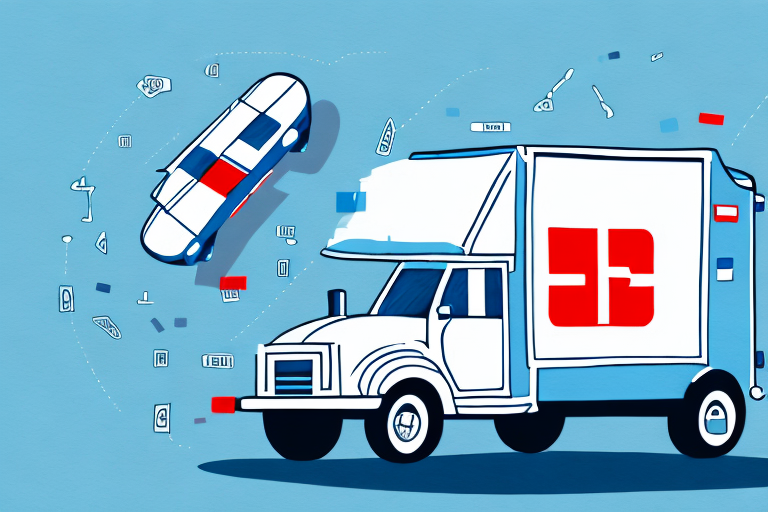How to Become an Independent Contractor Medical Courier
If you are interested in becoming an independent contractor medical courier, there are several steps you need to follow to succeed in this highly competitive field. As a medical courier, you will be responsible for transporting critical items such as blood samples, medical specimens, and medications between healthcare facilities and patients' homes. This job requires a combination of logistical skills, legal knowledge, a keen eye for detail, and strong organizational abilities. In this comprehensive guide, we will outline the essential steps you need to take to become a successful independent contractor medical courier.
Understanding the Role and Responsibilities
Overview of a Medical Courier's Role
Medical couriers play a vital role in the healthcare ecosystem by ensuring that essential medical items are transported safely and efficiently. This includes delivering blood samples, lab specimens, medications, medical equipment, and important documents between hospitals, laboratories, clinics, and patients' homes. According to the Bureau of Labor Statistics, the demand for medical couriers is projected to grow as the healthcare industry expands and the need for timely medical deliveries increases.
Essential Skills for a Medical Courier
- Strong Organizational Skills: Ability to manage multiple deliveries and maintain accurate records.
- Attention to Detail: Ensuring that all items are accurately handled and delivered without errors.
- Excellent Communication: Clear communication with clients and healthcare professionals to coordinate deliveries.
- Reliable Driving Skills: Safe and efficient driving to meet delivery schedules.
- Knowledge of Medical Terminology: Understanding medical terms to handle items appropriately.
Handling Sensitive and Emergency Deliveries
Medical couriers may be required to handle sensitive materials, such as organs for transplant or controlled substances. This requires strict adherence to protocols to ensure the integrity and confidentiality of the items being transported. In emergency situations, couriers must respond swiftly and accurately to meet critical delivery timelines, often under high-pressure conditions.
Becoming an Independent Contractor Medical Courier
Advantages of Being an Independent Contractor
- Flexibility: Ability to set your own schedule and choose your clients.
- Earnings Potential: Opportunity to set competitive rates and increase income based on performance.
- Business Growth: Control over business decisions and the ability to scale your operations.
- Tax Benefits: Access to tax deductions related to business expenses.
As an independent contractor, you have the autonomy to manage your workload and build a business tailored to your strengths and preferences.
Steps to Establish Yourself as an Independent Contractor
- Research State Requirements: Each state has specific regulations for medical couriers. Visit official state websites or consult with industry associations to understand the legal requirements.
- Obtain Necessary Insurance: Secure liability insurance and commercial auto insurance to protect yourself and your clients. OSHA provides guidelines on necessary safety precautions.
- Acquire a Reliable Vehicle: Invest in a well-maintained vehicle that meets the transportation needs of medical items, including refrigeration if necessary.
- Secure Permits and Certifications: Depending on your services, you may need specific permits or certifications. For example, transporting hazardous materials requires compliance with OSHA’s hazardous materials regulations.
- Set Competitive Rates: Research the market rates in your area and establish pricing that reflects your services' value and covers your expenses.
- Market Your Services: Create a professional website, utilize social media, and network with healthcare providers to promote your services effectively.
Legal and Financial Considerations
Licensing and Permits
Compliance with federal, state, and local regulations is crucial. This includes obtaining a valid driver's license, commercial vehicle permits, and any specific certifications required for transporting medical or hazardous materials. The Federal Motor Carrier Safety Administration (FMCSA) provides comprehensive guidelines for transportation regulations.
Insurance Requirements
Proper insurance coverage is essential to protect against potential liabilities. This includes:
- Liability Insurance: Covers damages or injuries caused during deliveries.
- Commercial Auto Insurance: Provides coverage for your vehicle used for business purposes.
- Workers' Compensation Insurance: If you plan to hire employees, this insurance is mandatory in most states.
Consulting with an insurance professional can help you determine the best coverage options for your business needs.
Setting Your Rates and Financial Management
Determining competitive and sustainable rates involves analyzing your operational costs, market demand, and the value of your services. Consider factors such as fuel expenses, vehicle maintenance, insurance premiums, and time invested per delivery. Additionally, effective financial management practices include:
- Tracking Income and Expenses: Use accounting software to monitor your financial performance.
- Budgeting for Taxes: Set aside funds to cover self-employment taxes and other obligations.
- Seeking Professional Advice: Consulting with a financial advisor or accountant can provide personalized financial strategies.
Building and Growing Your Business
Finding and Retaining Clients
Securing a steady client base is essential for business sustainability. Strategies to find clients include:
- Networking with Healthcare Providers: Establish relationships with hospitals, clinics, laboratories, and pharmacies.
- Partnering with Medical Facilities: Offer tailored services to meet the specific needs of different healthcare institutions.
- Utilizing Online Platforms: Register on platforms that connect couriers with potential clients.
Retaining clients involves delivering reliable services, maintaining clear communication, and exceeding client expectations consistently.
Marketing and Networking Strategies
Effective marketing can significantly boost your visibility and attract more clients. Consider the following strategies:
- Professional Website: Develop a user-friendly website that highlights your services, expertise, and contact information.
- Search Engine Optimization (SEO): Optimize your website content with relevant keywords to improve search engine rankings.
- Social Media Marketing: Utilize platforms like LinkedIn, Facebook, and Instagram to promote your services and engage with potential clients.
- Join Industry Associations: Participate in organizations such as the American College of Healthcare Providers to network and access resources.
Expanding Your Services
As your business grows, consider expanding your service offerings to meet broader needs. This could include:
- Providing specialized transportation for high-risk medical items.
- Offering home healthcare delivery services.
- Renting out medical equipment.
Ensure that you comply with all additional regulations and obtain necessary certifications before expanding your services.
Managing Operations Effectively
Scheduling and Delivery Management
Efficient scheduling is crucial to meeting delivery deadlines and maintaining client satisfaction. Utilize scheduling software or mobile apps that offer real-time tracking, route optimization, and automated notifications. Tools like Route4Me or Zoho Creator can help streamline your operations.
Maintaining Client Relationships
Strong client relationships lead to repeat business and referrals. Best practices include:
- Regular Communication: Keep clients informed about delivery statuses and any potential delays.
- Timely Service: Ensure deliveries are made within the agreed time frames consistently.
- Personalized Service: Understand and cater to the specific needs of each client.
Overcoming Challenges in the Medical Courier Industry
Navigating Competition and Market Trends
The medical courier industry is competitive, with numerous players vying for market share. To stand out:
- Offer Specialized Services: Focus on niche areas like pharmaceutical delivery or handling sensitive medical equipment.
- Maintain High Standards: Ensure reliability, punctuality, and professionalism in all your services.
- Stay Informed: Keep up with industry trends and technological advancements to remain competitive.
Adapting to Changing Regulations
The healthcare industry is heavily regulated, and staying compliant is essential. Regularly review updates from authoritative bodies such as HIPAA and OSHA to ensure your operations meet all legal requirements. Implement continuous training programs to keep yourself and any staff updated on compliance standards.
Ensuring Quality and Compliance
Maintaining high-quality standards is pivotal for success. Implement quality control measures such as regular vehicle maintenance, secure storage protocols, and continuous employee training. Additionally, conduct periodic audits to ensure compliance with all relevant regulations and standards.
Conclusion
Becoming an independent contractor medical courier can be a rewarding and lucrative career path for those who are organized, detail-oriented, and adept at navigating the complex legal landscape of the healthcare industry. By following the steps outlined in this guide and focusing on building strong client relationships, you can establish a successful medical courier business that provides essential services to healthcare professionals and patients alike. Stay informed, remain adaptable, and prioritize excellence in your services to thrive in this vital industry.



















